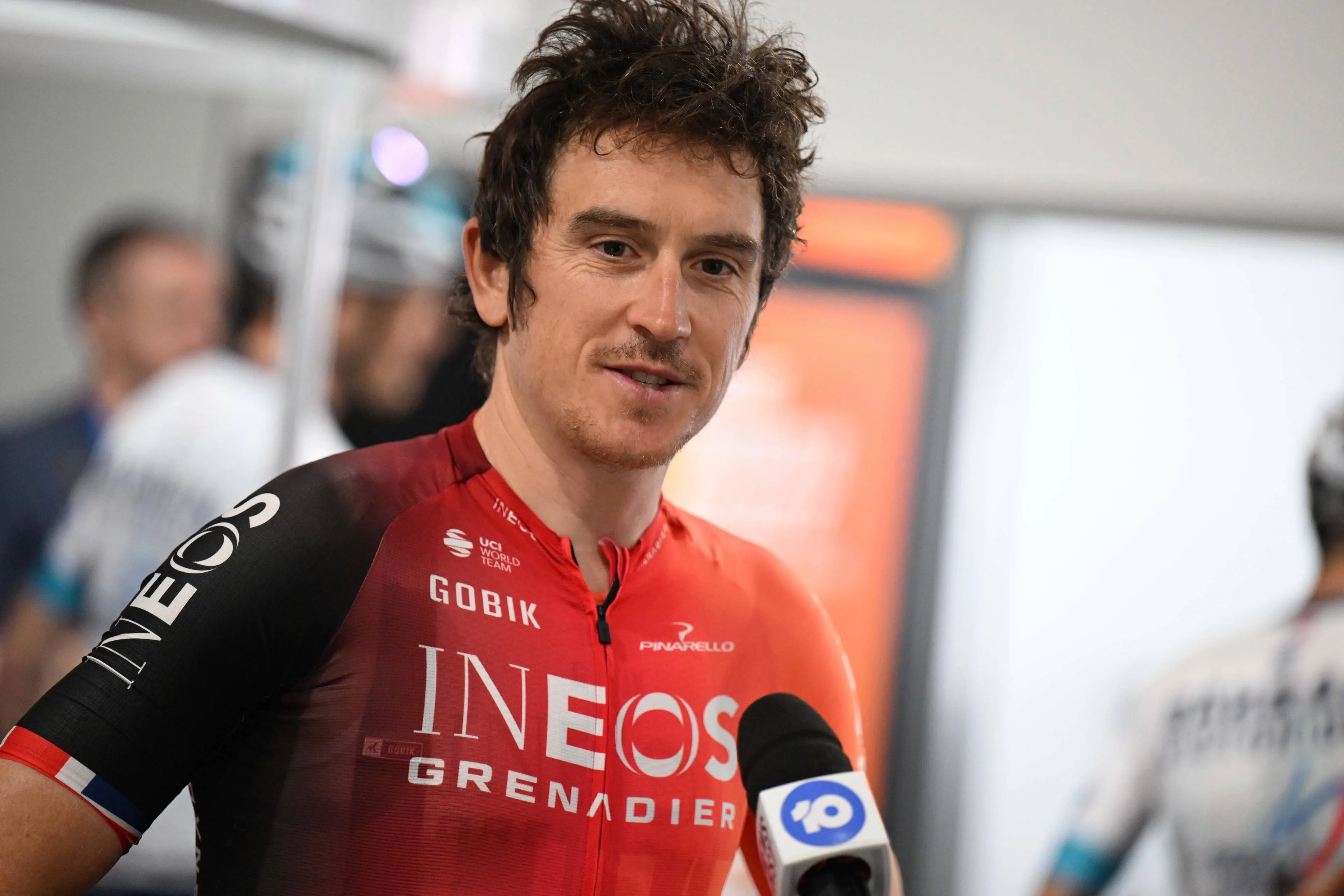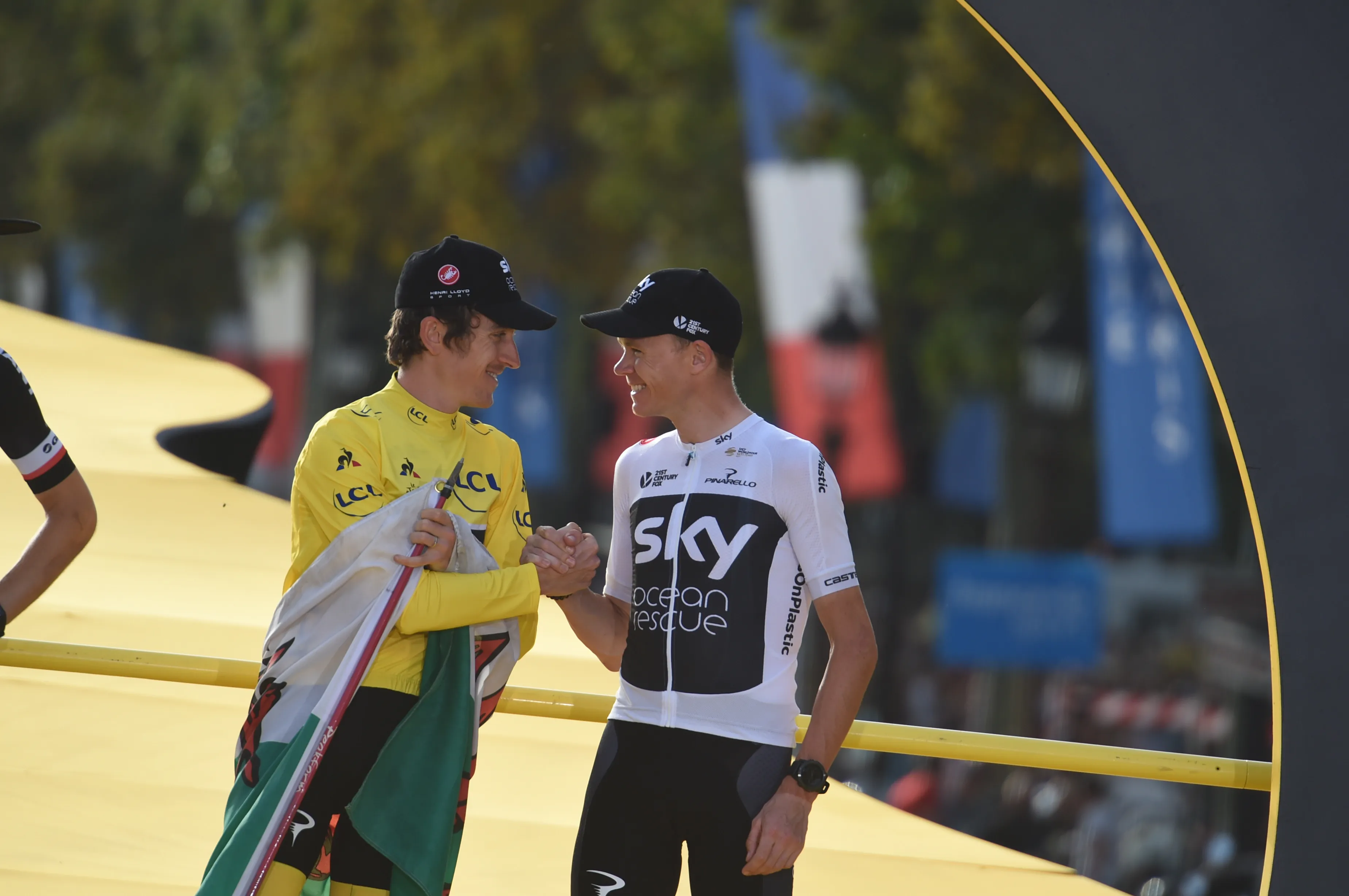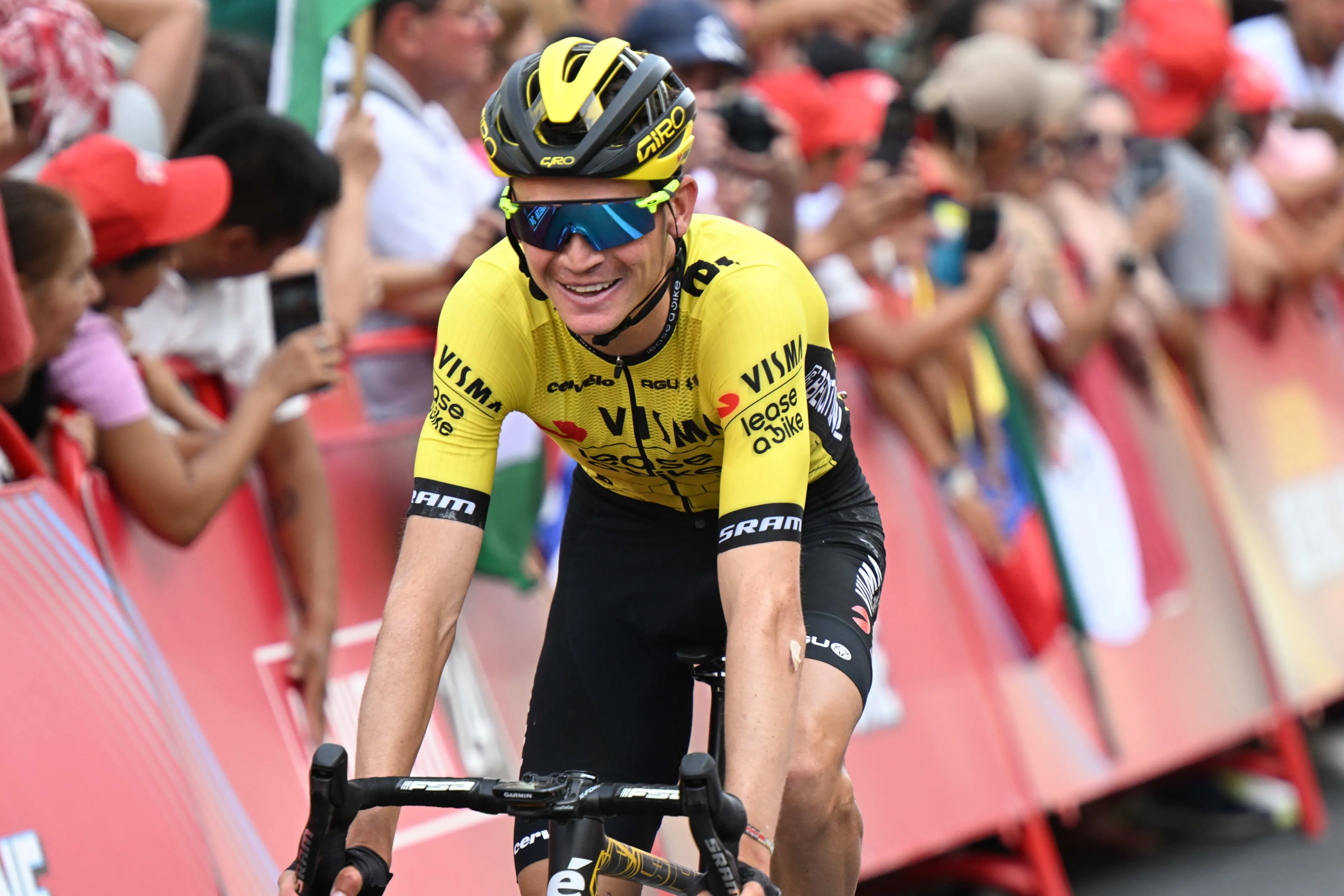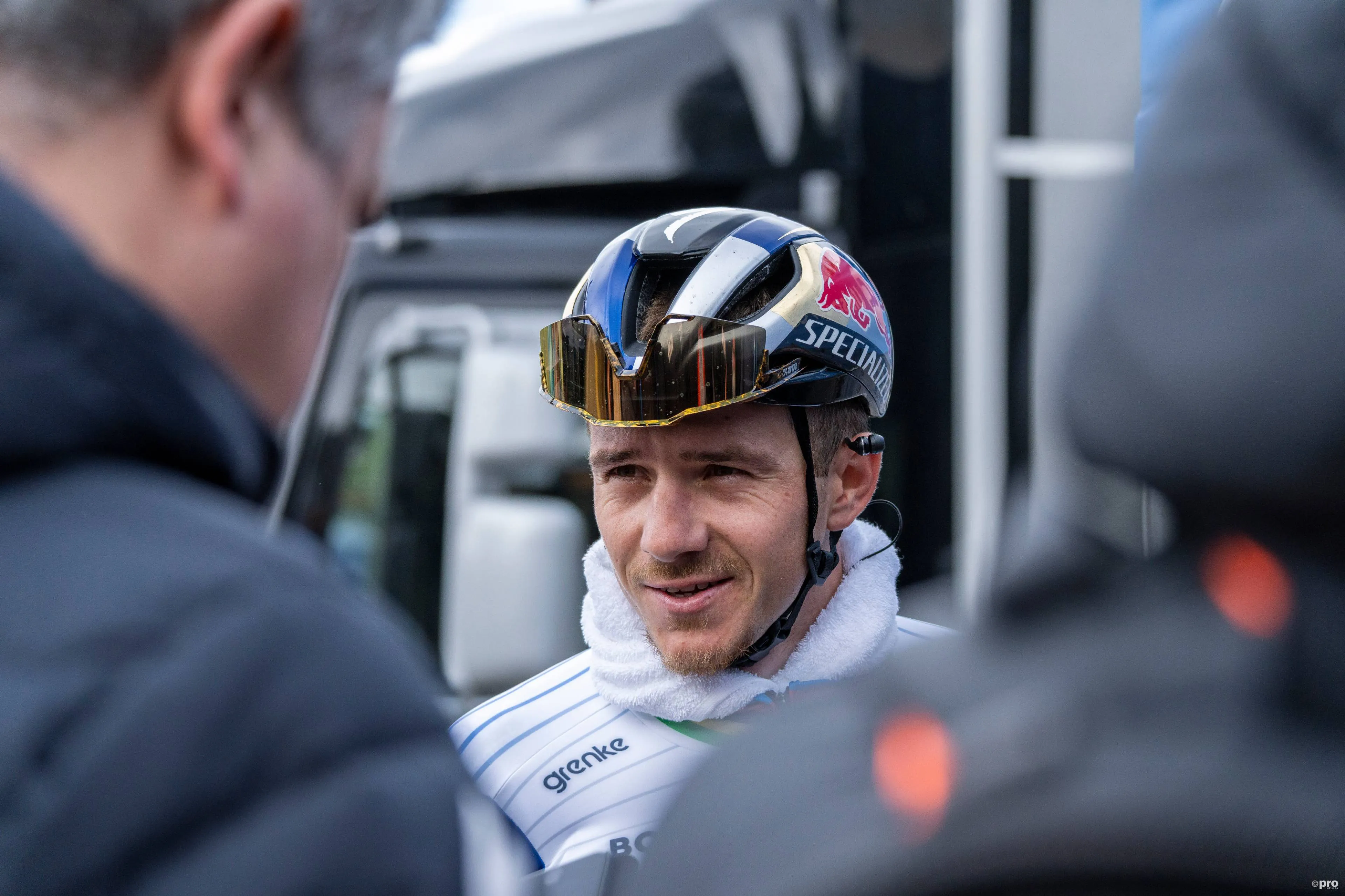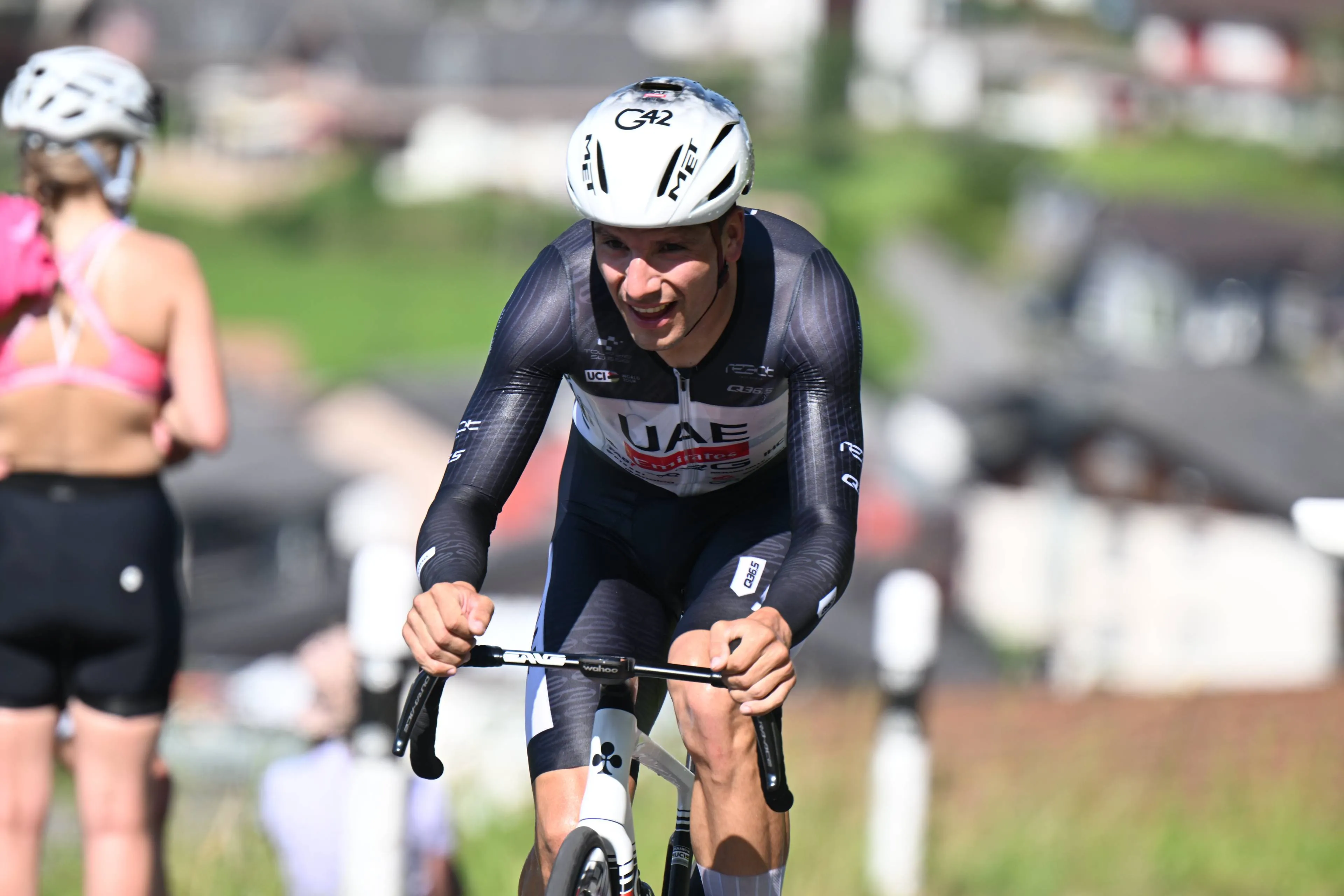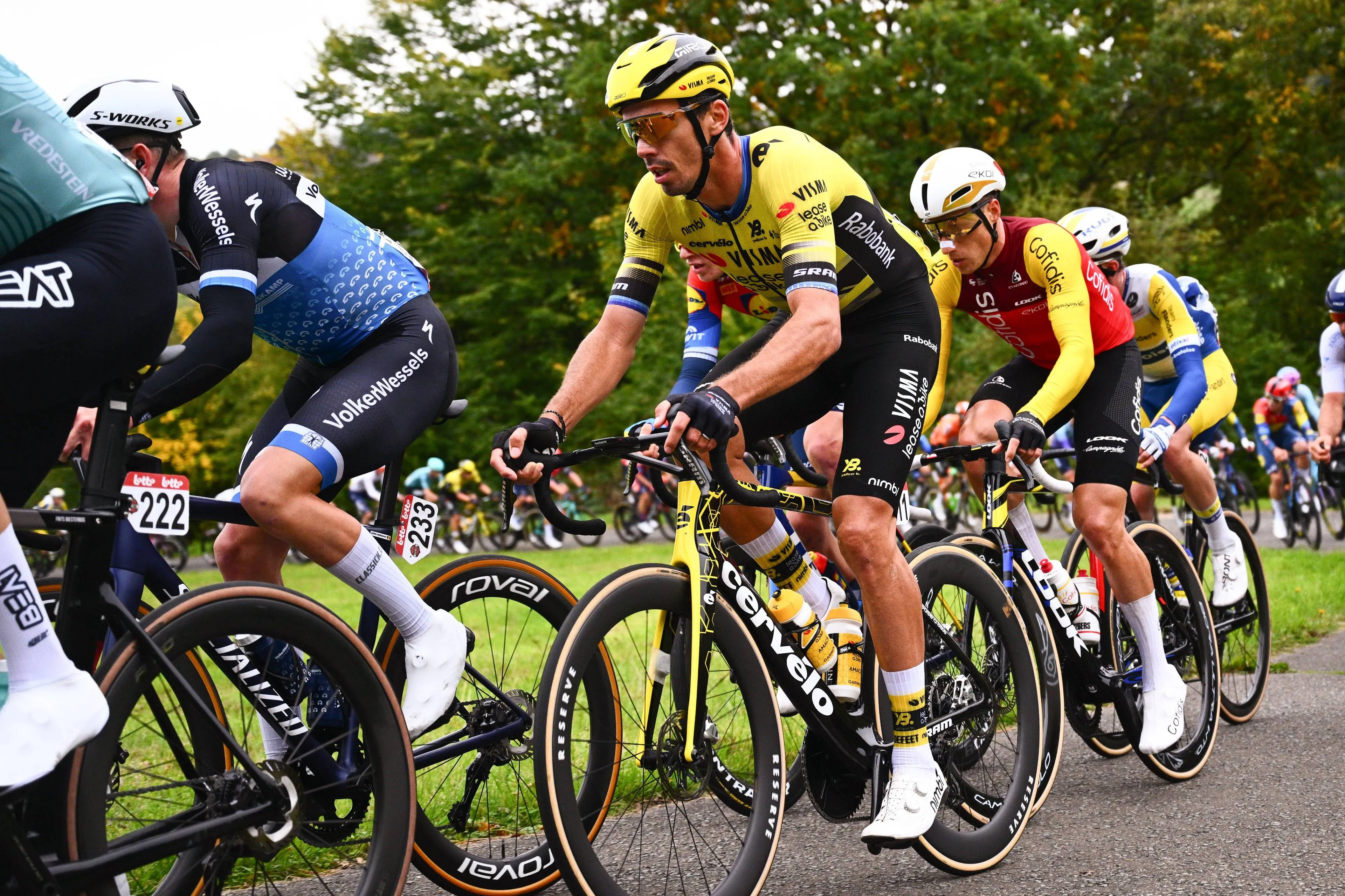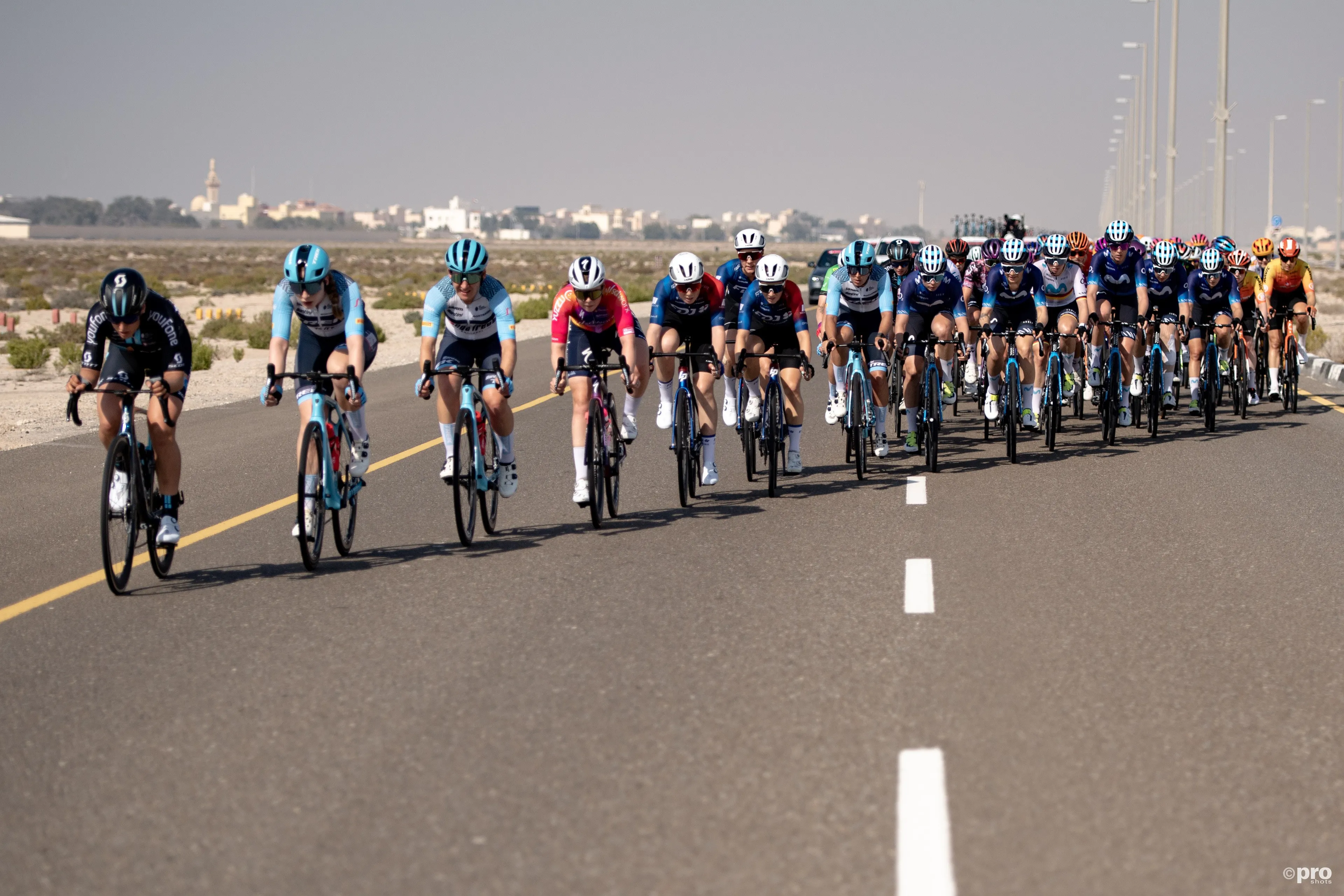“The big problem lies with the UCI” – Johan Bruyneel spares no sympathy for the organisers after nasty crash at the Tour de la Provence
CyclingMonday, 17 February 2025 at 11:00

At the Tour de la Provence yesterday, Sam Bennett claimed
victory in the stage, while Mads Pedersen secured the overall title. However,
the final sprint was overshadowed by a nasty crash in the peloton at the end of
the race.
As the race entered its final few hundred metres, the
sprinters were preparing to build to maximum speed to compete for the race win.
Unfortunately, Pascal Ackermann suffered a disastrous moment as he tried to
accelerate, as his front wheel lost grip on a speed bump, sending him crashing
hard onto the tarmac.
Read also
The situation worsened as riders behind him had no space to
react, leading to a pile-up involving multiple other competitors, some of which
went over their handle bars.
This incident once again raises concerns over the current
safety standards in professional cycling. Over the past few months, multiple
junior riders have tragically lost their lives in training accidents.
Additionally, at the 2024 World Championships in Zurich, Muriel Furrer’s fatal
fall prompted serious questions about course design, race safety, and the
handling of riders who have crashed.
Among those speaking out on social media following the crash
was Johan Bruyneel, a former professional who won two stages at the Tour de
France and one at the Vuelta a Espana. Now 60, Bruyneel was highly critical of
the race’s organisation and the role of the UCI in ensuring rider safety.
Read also
“My opinion on this? A speed bump in the last stretch and so
close to the finish line should never be allowed, ever. We have to ask the
question: who designs these courses? This isn’t rocket science, depending on
the profile these courses have a reasonably predictable outcome.
“In this case, high probability for a bunch sprint, so a
speed bump in the last few meters is almost a guaranteed disaster. So the first
question really is: who designs the course? Next question is: who approves the
course? I realize it’s not as simple of a process as we might think, but
ultimately for me, the big problem lies with the UCI.”
Bruyneel did not hold back in his criticism of UCI President
David Lappartient, stating that the organisation prioritises shifting blame
onto riders rather than addressing preventable dangers.
Read also
“Their president, David Lappartient keeps pushing the news
that rider safety is one of their priorities, but whenever he has the
opportunity, he blames the riders’ behaviour for crashes and accidents.
Sometimes that’s true, but many, many times there are circumstances that can be
avoided, like today.
“Lappartient also keeps boasting about ‘SafeR,’ what he
calls an external and independent entity responsible for analyzing safety
situations and making recommendations for improvements. I just want to take the
opportunity here to remind everyone, including Lappartient himself, that
‘SafeR’ was initially an initiative of the teams.
“The teams came up with the idea of contracting an external
and really independent organization which was supposed to study the situations
and work on improvements for rider safety. It is my understanding that
Lappartient has listened to the teams' proposal but (and this happens often
with sporting federations) turned it into his idea and forced the teams to let
the UCI do the talking.
Read also
“Now SafeR is working directly for the UCI and not for the
teams and their riders. It is absolutely not independent, and their reports are
monitored and published by the UCI. What the UCI does usually is punish either
riders, DS, or organizers for incidents in races. They prefer to punish small
organizations; they will never punish ASO, for example, even if sometimes in
the Tour de France there are courses or finish stretches that could be a lot
safer.
“Richard Plugge, or any other team manager, tell me if I’m
wrong. (I realize I may have missed some details along the way about the
creation of SafeR, but I don’t think I’m far off.)”
Read also
The crash at the Tour de la Provence has once again
highlighted the need for greater oversight in race safety. While cycling
remains the sport that we love, the risks involved continue to be a major
talking point and the handling of these situations simply must improve.
With
figures like Bruyneel speaking out, the conversation around rider safety is
unlikely to fade anytime soon and it is time now for action. Whether the UCI
will take meaningful action in response to these concerns remains to be seen.
My opinion on this?
— Johan Bruyneel 🇧🇪 (@JohanBruyneel) February 16, 2025
A speed bump in the last stretch and so close to the finish line should never be allowed, ever. We have to ask the question: who designs these courses? This isn’t rocket science, depending on the profile these courses have a reasonably predictable outcome. In… https://t.co/XL5TTHYuiZ
claps 1visitors 1
Just in
Popular news
Latest comments
- Ego and self regard are at the center of most human folly.TheOlderIGetTheFasterIWas18-02-2026
- You can't win 'em all. These early season races at this level are good because it shows where you are weak and need work.awp18-02-2026
- This is what I wrote 12-02-2026 10:00: "As far as I'm convinced, Remco still has "zero" wins. I invite Remco to stop in Siena to meet his Slovenian master, Pogi the G.O.A.T... but no, it's better to run away and hide. His fans will somehow defend and glorify him. Let me repeat, he still has zero wins in 2026. If someone doesn't have a high enough IQ to understand what I'm talking about, it's because they don't recognize the low ranking F category races. If Remco will beat Del Toro and Adam Yates in the UAE Tour, then I will consider this to be his first win in 2026. Ad acta." PS: Remco still has zero wins. His second and third class races don't count. The first real race comes along and Mustafa Remco fails.Mou-Cro-HR18-02-2026
- This is what I wrote 12-02-2026 10:00: "As far as I'm convinced, Remco still has "zero" wins. I invite Remco to stop in Siena to meet his Slovenian master, Pogi the G.O.A.T... but no, it's better to run away and hide. His fans will somehow defend and glorify him. Let me repeat, he still has zero wins in 2026. If someone doesn't have a high enough IQ to understand what I'm talking about, it's because they don't recognize the low ranking F category races. If Remco will beat Del Toro and Adam Yates in the UAE Tour, then I will consider this to be his first win in 2026. Ad acta." PS: Remco still has zero wins. His second and third class races don't count. The first real race comes along and Mustafa fails.Mou-Cro-HR18-02-2026
- OK, let's stop with the BS. Remco Mustafa didn't have any cramps, 100%. The only truth is, Remco is not the great cyclist that the Belgians and his fans want us to think. Ad acta!!!... Once in the fall of 2025 I said that Remco's chances of following Pogi are equal to my chances, there is no difference. The only difference is that I'm in front of a TV and Mustafa is acting and making excuses live in front of an audience of millions. Ayuso and Remco are the biggest liars in the peleton.Mou-Cro-HR18-02-2026
- I just hope that he just says that he got cramps and that's it, rather than some long-winded excuse which makes him seem even more of a piece of...
 Rafionain-Glas18-02-2026
Rafionain-Glas18-02-2026 - finally, a team that does something smart. I could never understand why Ineos would like Egan train as he did alone. put a motorbike behind him with an earpiece to call out issues above. same with remco crashing into a postal truck.mij18-02-2026
- Wow, that is not a good sign for Remco. Great win for Tiberi!Pedalmasher18-02-2026
- Great champion Remco but his profile is more suitable for Ardennes-like races and tour with no very hard climbs. Not only Tadej and Vingegaard, there are a lot of younger cyclists (del Toro, Ayuso, maybe Seixas, Nordhagen and others) that will soon be big GC boys.
 maria2024202418-02-2026
maria2024202418-02-2026 - Evenopoel 1st real test, and he failedZamorano18-02-2026
Loading
Write a comment
